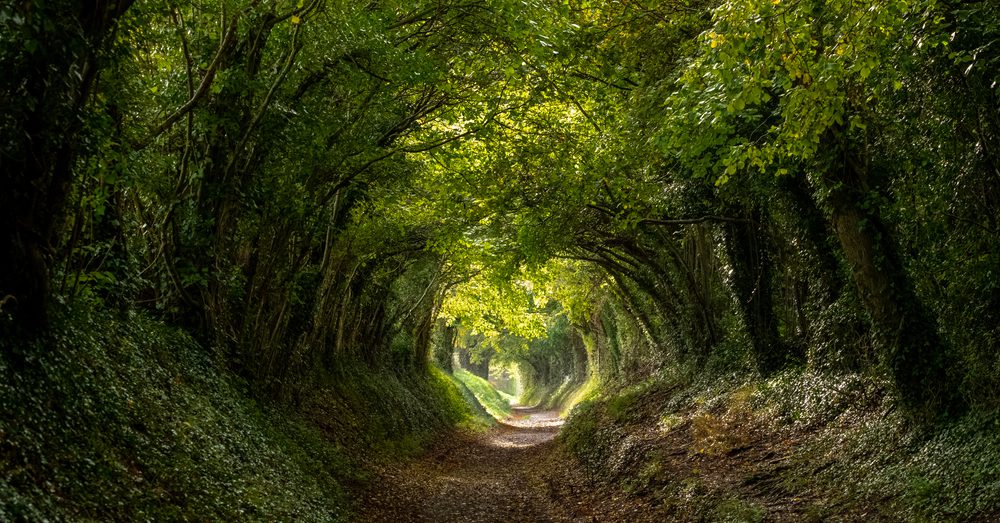We never expected to see anything like this. With a single piece of legislation, decades of hard-won protections for nature could be cast aside. Every person in England and, to a lesser extent, Scotland and Wales, could feel the impact in their town, city, or housing estate.
The Planning and Infrastructure Bill has caused the utmost alarm amongst the environmental NGOs and their members. Why? Because it has become clear that without amendments, Part Three of the Government’s Bill effectively eliminates the “mitigation hierarchy”, the central principle of our protections for nature during development.
The “mitigation hierarchy” – which has been the central tenet in environmental protection legislation in the UK for the past 50 years – requires developers to avoid tearing down and building over vital and irreplaceable habitats by first looking elsewhere for suitable locations on which to build their projects.
Where avoidance is impossible, the focus then shifts to minimising the negative impacts of their project on nature and wildlife, and then, if that is not possible, they must take steps to restore any habitats they damage as best they can.
Only when all these options are ruled out can developers “offset” destruction, usually by paying money to do something for nature elsewhere.
Part Three of the Bill, if it proceeds without significant amendment, throws this long-established and vital safeguard into the fire.
It hands over to developers a “license to destroy” any habitats in the name of accelerated housebuilding, as long as said developer has deep enough pockets to pay into a new, generalised Nature Restoration Fund.
What is more, nobody, not even the Government, has shown any evidence that it will speed up house building one iota, or that the mitigation hierarchy is the thing currently slowing it down.
We know from our own evidence that far too many ancient woods are threatened under existing protections – this will make them far more vulnerable.
This creates the prospect of an existential crisis for nature, and communities throughout the country are rightfully panicked about what it will mean for the ancient trees, chalk streams, woodlands, and green spaces in and around their towns and cities.
Trees and woods face a major threat from the Bill. Even our oldest and most special trees often lack specific legal protection from damage.
Recently, we saw – with the felling of the Whitewebbs Oak in Enfield – how quick and easy it was for a company to cut down a 500-year-old tree, beloved by Londoners, and how appalled the entire nation was that this priceless piece of our heritage was taken from us in such a fast and fumbled fashion.
Research done by the Woodland Trust last year shows how important the biodiversity of UK woodlands is to the health and wellbeing of our communities.
Allowing developers to take the axe to ancient woodlands and old trees, teeming with life, to build developments devoid of the sound of birdsong or the rustle of leaves, will not solve the housing crisis. It will create a new one.
How do tree saplings, planted – thanks to the Nature Restoration Fund – miles, perhaps counties, from a new development, help the communities who will live in it?
And what good are they to the hundreds of species of plants, beetles, lichens, birds, and dormice, established over centuries in the woodland mowed down for it to be built?
This type of offsetting also cannot replace the ancient trees, with their rich soils, that are locking in carbon from the atmosphere and giving us all clean air to breathe.
Our ancient woods and trees are irreplaceable. They cannot be compensated for with cash. They must be protected. We need sufficient safeguards in place, including the mitigation hierarchy.
Decision-making must be underpinned by robust, environmental data – including site-specific surveys – that help us understand what the impact of every development will be before anyone gets behind the wheel of a bulldozer. That is why we, as a nation, fought to have these protections in the first place.
They aren’t strong enough as it is. They cannot be tossed away altogether, without serious repercussions for us all.
The unamended Bill also threatens local democracy and scrutiny by tightening judicial review timescales and limiting opportunities to appeal planning decisions.
It not only reduces opportunities for communities to challenge big infrastructure projects but also removes the need for developers to consult communities on their large infrastructure projects before applying to the Government for permission.
So, what can be done? We at the Woodland Trust support the four priority amendments proposed by Wildlife and Countryside Link.
These include ensuring, where significant damage is expected, conservation measures are delivered before harm occurs. If the Government does not dramatically improve Part three of the Bill, we will call for it to be removed entirely.
At the point of writing, the Government has rejected amendments to the Bill, from all parties, that would help address our concerns, while tabling its own amendments.
The findings of the Government’s own impact assessment, the recommendations of its own watchdog the OEP, and the concerns of constituents voiced by MPs across the political spectrum have been ignored. At Report Stage in the Commons, we did see the Government indicating a willingness to consider how greater certainty can be given around outcomes for nature.
This is encouraging, but it must result in amendments along the lines of the above. Without them, Part three of the Bill should not proceed.
We do need new houses, but everyone deserves the opportunity to live close to nature and the benefits that provides in terms of health and wellbeing, air quality, and resilience against flooding. All we are asking is that nature is embedded in development design, not sidelined.
This is possible and already happening in the best developments. Nature, and woodlands in particular, must sit at the very heart of community development, and we must ensure clear and strict protection for ancient woodland and trees.
Already, thousands have signed the Woodland Trust’s petition and written to their MP about the Bill. We are calling on the Government to listen to the British public and add amendments to the Bill that will protect our priceless, ancient trees and woodlands, while delivering the sustainable development we need.
We can have both, and it is time for the Government to show it is serious about this, before it is too late.
Featured image via Lois GoBe / Shutterstock.


